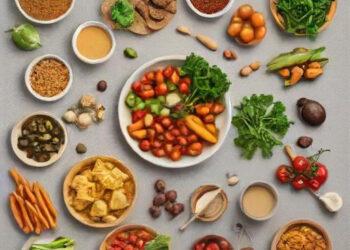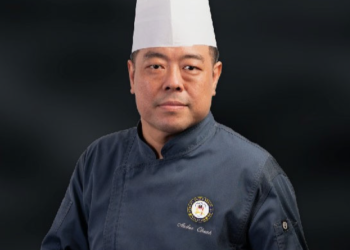-Contribution Article
One of India’s biggest festivals, Diwali, is here again. The festival of lights that marks the victory of good over evil commemorates Lord Rama’s return to Ayodhya, his native, after fourteen years of exile. It is a time that lifts our mood, gives us an opportunity to get together and celebrate, and of course, indulge in our favourite food – with no guilt. Diwali without food is incomplete and every member of the family looks forward to their favourite sweets like kaju katli, motichoor laddoos, gujiyas, barfis, rasgullas, gulab jamuns, chocolates and more along with some fried snacks like bhujia, chanachur, murukkus among others. While most of these are ordered, the traditional sweets and snacks are prepared at home.
Due to the pandemic, everyone has become health conscious, which is a welcome change. Prakash Kumar, Executive Chef from The Woodrose Club, recalls how his mother and other family members used to get together to make sweets and snacks at home to celebrate the festival. Whereas now, wishes are restricted to phone calls and wishing each other on social media platforms. Chef further adds, this year he would like to encourage everyone to opt for a healthy diet by eating sweets guilt-free. He suggests exploring desserts like multigrain laddu, apple kheer, steamed halwa, sugar-free barfi, oats kheer, baked snacks like chakli, samosas, namakpara, etc. The festivities will become merrier with some delicious low-calorie Diwali special sweets and snacks that are healthy yet delicious.

Chef Prakash further emphasizes how other parts of our country celebrate Diwali by preparing traditional dishes that resonate with their respective regions. For instance, the famous Mawa Kachori from Rajasthan; Moti Pak from Rajasthan and Gujarat; Chiraunji ki Barfi from Madhya Pradesh; Teepi Gavvalu from Andhra Pradesh; Gujjia and Gulgule from North India; Shankarpale from Maharashtra; Deepawali Legiyam from Tamil Nadu and so many more varieties, all of which are high in calories and their healthy versions are made as well.
On the other hand, Naresh Behera, Executive Sous Chef from The Regent Club fondly remembers his festive memories. As a child, he would get to wear new clothes, visit new places, decorate the house and enjoy indulging in special festive food, particularly sweets. He was served Dry fruits Sandesh, which is one of the best sweets to have after lunch or dinner that he has continued till date at his home. He believes during winter; it is best to have Sarson ka saag with Makki di roti, since it is extremely healthy. And, on festive occasions, sweets like gulab jamun can be made with jaggery instead of sugar, for it is a healthier option one should choose. Chef Naresh adds that COVID-19 has taught us a lot of lessons, the prominent one being our lifestyle. He would like everyone to celebrate Diwali healthily by taking all the safety precautions.






